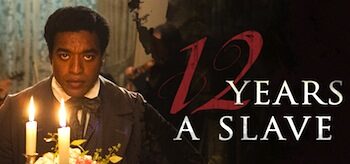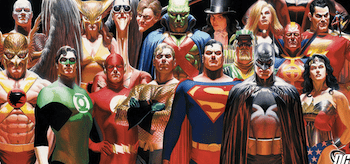IN THE BLINK OF AN EYE: Colby Day’s Touted Black List Sci-Fi Drama in the Searchlight Spotlight
Writer Colby Day’s science fiction drama, In the Blink of an Eye, highly ranked on the 2016 Black List, started filming in March of this year.
WHAT CAUGHT MY EYE?
The same thing that likely caught the attention of the folks at Searchlight — a high rank on the Black List website. The genre on its own generated enough interest for me, especially the ‘time jump’ aspect, always a turn on for me. Its logline, “The history of the universe and human life . . .” is no small claim. I had to check it out. I was preparing for the long haul, but with almost no effort at all, lo and behold, the entire screenplay itself was available for perusal. What luck! It goes without saying that your correspondent downloaded it PDQ.
SPEC SCREENPLAY
As a screenwriter myself, I’ve done my fair share of reading spec screenplays and offering feedback on request. But nothing prepared me for what I assumed was the same script (dated 10/26/2016) so loudly lauded on The Black List. (Spoiler alert: I outlined the basic plots in the spec, as spare as I could make it. It has already gone through at least two rewrites. Consider this if you like watching movies cold.)
Content
Having nothing but the logline to go on, I expected the screenplay to read something along the lines of Cloud Atlas with three parallel plots. Based on my reading, this opus handled the logistics admirably, though I think it fell a bit short of the entire history of the universe, though it did hit some major marks and set up some interesting interactions.
Starting with a short preface with some reading tips and describing a snazzy opening scene, the three intertwining stories are as follows: a Neolithic family with subtitle translation; a present day couple, both scientists and professors at a prestigious university; and a 23rd century transport, presumably post-apocalyptic, headed to a distant star for colonization, the crew composed of a single woman and the ship’s computer, voice interactive and evidently more hip than she is.
A major common theme explores intimate relationships, family, lovers, friends. The foundations are pretty solid between the first two, and the connections easy to guess. The segues from those between the third are a little more tenuous, and doesn’t offer many clues besides a sort of spacefaring Noah’s Ark. An acorn serves as a common symbol and figures prominently in all three, and the message is clear right away: From it, springs the mighty oak.
Form
The screenplay’s form gave me the biggest surprise. Before and after grad school, having written a couple dozen scripts over the decades (some doing well in competition), and having critiqued dozens more, I flatter myself by saying I have a pretty fair basis for comparison.
My first thought: Was this a screenplay, or stream of consciousness with dialog? And what’s with all the profanity in the narrative sections? It wasn’t a difficult read at all — the pacing was good — but overall, it looked sloppy, as though it were dashed off in a matter of hours and posted straightaway.
Also, I noticed a fair amount of exposition as to the character’s inner life, to offer the actor clues to motivation is my guess. Helpful in my view, but this was a cardinal no-no, according to format rules. Apart from a few hints in the narrative sections, the prevailing mantra at that time was: If you can’t film it, don’t write it. And hey, no intruding on the actor’s territory; it’s their job to flesh out the characters, not yours.
The screenwriting conventions I learned — hell, I got lambasted with — right from the start were stringent. There were a very few allowances for individual writing styles, for example, the use of onomatopoeia. But there were specific elements you never messed with. Margins, fonts, and tabs; these seemed in Day’s piece. But the devil was in the details: text had to be clean, i.e., check spelling and punctuation. In short, it had to look ‘professional.’
On the other hand, I hadn’t read a spec script in quite a while. Could it be that the industry conventions changed in the meantime?
I mulled over that notion, trying to work through my reactionary attitudes. I recalled the acclaimed dialog coach, Erik Singer, advising that language was always changing, and to avoid quibbling over ‘proper’ use, like ‘literally’ can also mean ‘figurative’ at times, and so on. (My own pet peeve had been ‘irregardless’ — how I railed over that one.)
Finally, I realized also that a spec script is essentially a sales tool, and if purchased, the shooting script would go through a series of drafts. In fact, In the Blink of an Eye already had two rewrites under its belt before pre-production.
So then I began to wonder, who is Colby Day?
THE WRITER
Google did stellar work in record time. There’s no Wikipedia entry of his own (yet), but I checked out the latest short film made by Day’s company, Not Impossible Productions, an 11-minute piece entitled Lead/Follow. It’s an extraordinary piece about the developing intimacy between two persons, juxtaposing impressive dance numbers with declamatory dialog; the technique seems drawn from Day’s work in live theatre.
I wanted to screen this film for a frame of reference when I watched the 38-minute interview on a YouTube channel, Bain’s Film Reviews. Both were a revelation.
Colby Day — frank, affable, humorous and laid-back — was a far cry from the hotheaded libertine I’d expected from the narratives liberally laced with four-letter words. Far from it; here was an intelligent, clearly introspective guy whose manner conveys dedication and purpose, suggesting a well organized philosophical approach to his work. There were no details about Colby’s early life or education, but focused on his creative beginnings in theatre and film. Andrew Stanton, writer/director of the universally acclaimed WALL-E, is in the director’s chair.
THE ACID TEST
Will the spotlight become limelight? All things considered, certainly there is plenty of potential to be a standout indie, and I, for one, will be on the lookout for opportunities to see it.
Leave your thoughts on the forthcoming release of screenwriter Colby Day’s In the Blink of an Eye below in the comments section. Readers seeking to support this type of content can visit our Patreon Page and become one of FilmBook’s patrons. Readers seeking more movie news can visit our Movie News Page, our Movie News Twitter Page, and our Movie News Facebook Page.
Want up-to-the-minute notifications? FilmBook staff members publish articles by Email, Twitter, Facebook, Instagram, Tumblr, Pinterest, Reddit, and Flipboard.
Related Articles
FilmBook's Newsletter
Subscribe to FilmBook’s Daily Newsletter for the latest news!













